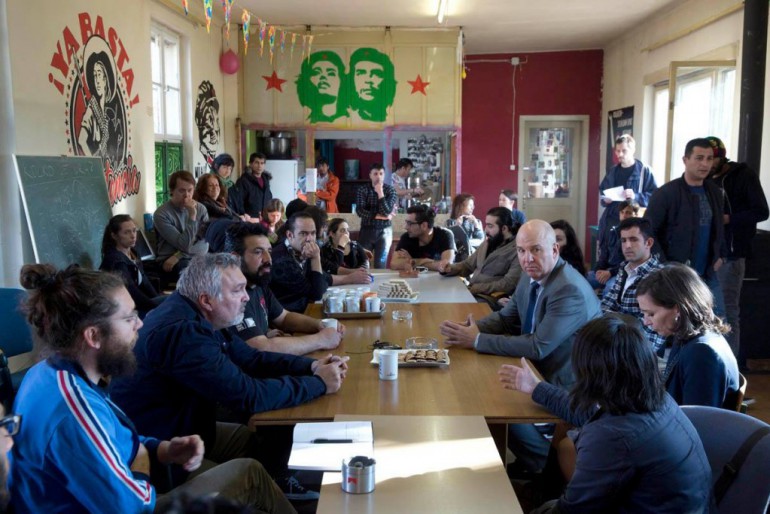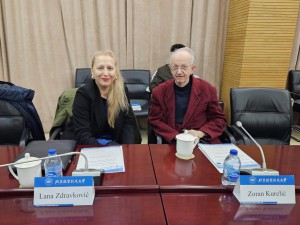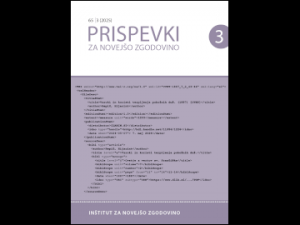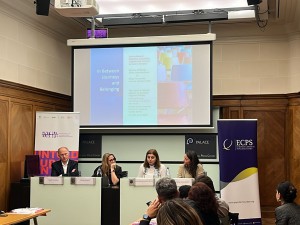“Slovenija si mora prizadevati zaščititi ranljive ljudi”
12. 7. 2017 | Človekove pravice in manjšine, Politika

Komisar Sveta Evrope za človekove pravice je 11. julija 2017 po letošnjem obisku v Sloveniji objavil poročilo. Priporočila se osredotočajo na človekove pravice, ki se nanašajo na migrante, romsko skupnost, “izbrisane” in ljudi, ki živijo v revščini. Medtem ko je poudaril opazni napredek v zvezi z integracijo, izobraževanjem, življenjskimi standardi in zakonodajnim okvirom, ki se nanašajo na te skupine, je komisar zahteval učinkovito krepitev in trajnost teh pozitivnih ukrepov.
Neža Kogovšek Šalamon, direktorica Mirovnega inštituta, je poročilo pozdravila in poudarila njegov pomen za vse ranljive skupine v Sloveniji, zlasti revne, manjšine in diskriminirane. “Poročilo, njegove ugotovitve in priporočila kažejo, da je komisar Sveta Evrope za človekove pravice še vedno močan partner držav, civilne družbe in skupnosti, ki živijo v Evropi pri varstvu standardov človekovih pravic in njihovega napredka.”

Komisar za človekove pravice Sveta Evrope Nils Muižnieks se je sestal z nevladniki in begunci, ki so socialni prostor našli v tovarni Rog.
Povzetek v angleškem jeziku:
Following his visit to Slovenia from 20 to 23 March 2017, Nils Muižnieks, Council of Europe Commissioner for Human Rights, released a report to shed light on the progress and persisting issues surrounding the rights of migrants, asylum-seekers and refugees, Roma, the “erased”, and people living in poverty. While the Commissioner commended Slovenia’s participation in the relocation and resettlement schemes as well as the establishment of the Government Office for Care and Integration of Migrants (2017), he also highlighted the issues of increased delays on asylum procedures, the alleged consideration of imposition of stricter legislation on family reunification, the vulnerability of unaccompanied minors and their necessity for individualized support, as well as the concern about the quality of services provided to migrants and asylum-seekers. The Commissioner also identified the necessity for implementing pre-integration measures for asylum seekers, such as language courses and the granting of earlier access to the labour market. He encouraged the involvement of refugees in designing integration programmes, and advised Slovenian political figures to avoiding using “language that fuels fear and intolerance”. The Commissioner also made his position clear on the January 2017 amendments to the Aliens Act, asserting that these changes violate Slovenia’s international legal obligations, EU legislation, and the ECHR. He called on Slovenian authorities not to activate the amendments, and to refrain from imposing further legislative barriers to effective adherence to asylum obligations.
With regard to Roma the Commissioner noted that the situation of Roma communities is not homogeneous throughout the country. He noted that the Roma population continues to be a victim of prejudice and in some parts of the country also a victim of poor living conditions – including lack of access to clean drinking water, lack of quality education, and housing difficulties. The Commissioner also expressed concern over the common practice of forced marriage and early pregnancies in Roma communities, which is in violation of international and Slovenian law. Also, the Commissioner recommended curbing the practice by amending the legislation to specify a minimum age for marriage and ensuring the implementation of prevention strategies. Furthermore, the Commissioner encouraged the Slovenian authorities to closely follow the possibility of de facto segregation of Roma children in pre-schools and schools, and to solve the issue of substandard housing settlement conditions through sufficient political will at the local and government levels, with a view to ensuring effective integration. Although the Commissioner observed the strong policy framework on Roma rights and the implementation of projects in areas of rights and integration, he called for reforms of the Roma Community Act, and advised the National Programme of measures 2017-2021 to aim to include “concrete and measurable targets” and ensure adequate funding.
With regard to the “erased” people the Commissioner noted the measures taken by the government to compensate and regularise the victims of these measures. After the passing of the 2010 Legal Status Act, about 10,300 “erased” were able to restore their status after the due procedures. He recommended that the rest of the “erased” persons be given a possibility to integrate into Slovenian society with a regularised status. Furthermore, the Commissioner urged for educational material regarding the “erased” to be included in the national core curriculum of Slovenian schools.
Lastly, the Commissioner addressed Slovenia’s increasing poverty rate since the economic crisis, although with the number of poor people in the country being at 14.5%, it is within the EU average. According to the Commissioner, “poverty is both a consequence and a cause of violations of human rights protected under international and national law, such as the right to work, the right to adequate food, the right to education, the right to health, to housing and the right to an adequate standard of living.” The most jeopardized groups include children in vulnerable families, older persons, the long-term unemployed and working poor. The Commissioner urged Slovenian authorities to consider contextualizing poverty in a human rights-based approach by grounding social policies in the international human rights framework. Further adjustments should include lifting the 2012 austerity measures immediately after the economic growth target is reached, adjusting the minimum wage to suit the current economic context of Slovenia, and refraining from enacting reforms which could be detrimental to the welfare of older persons.




